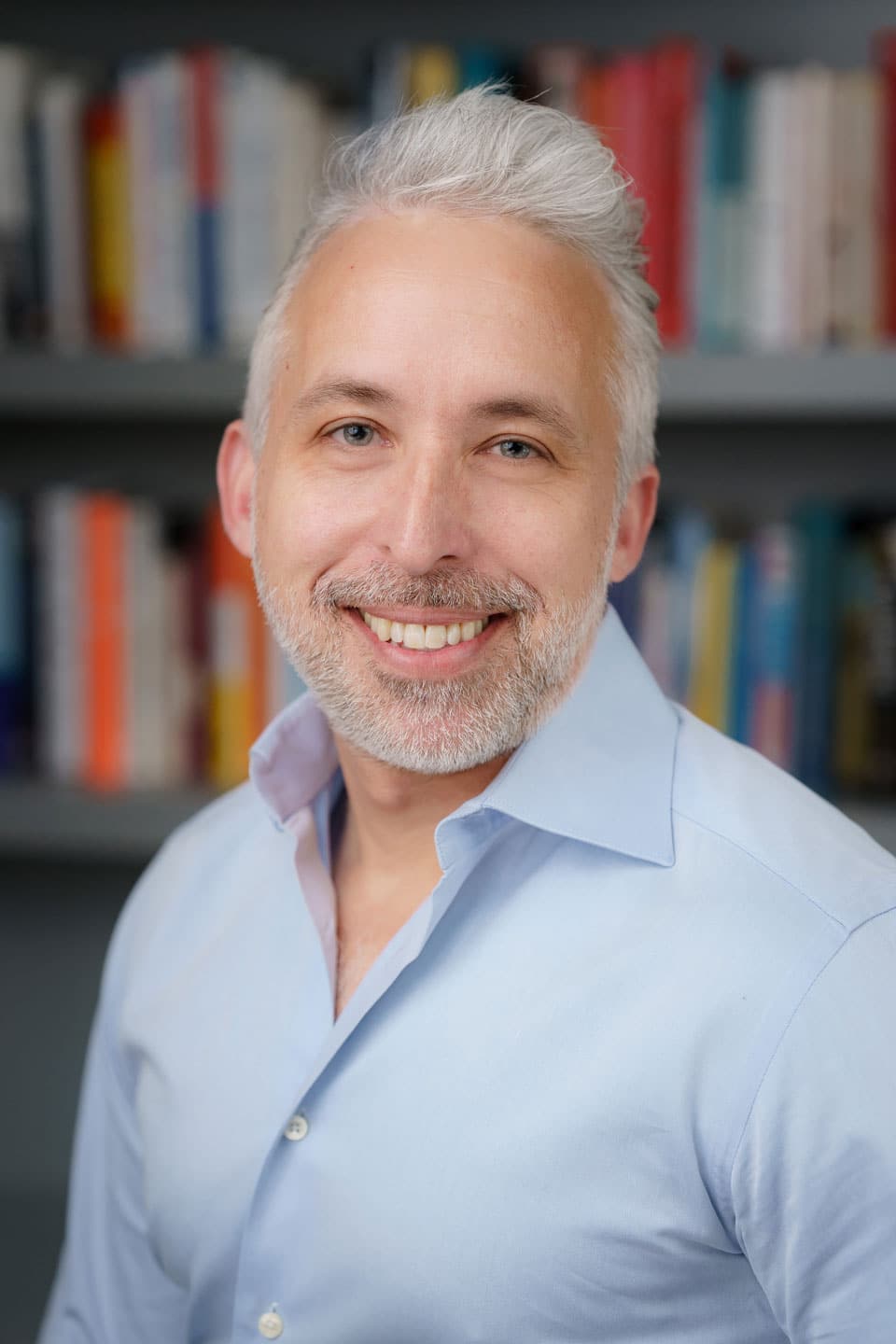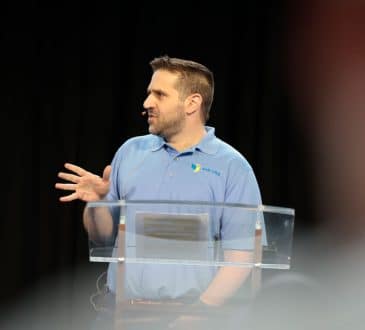3 Ways Developing Your Emotional Intelligence Can Strengthen Your Career Trajectory

When people talk about someone’s intelligence, they typically mean their IQ—their knowledge across a range of topics. The image of a student taking a test, or a professor lecturing in an auditorium, may come to mind.
But intelligence is far more than just the ability to impress people with facts and figures. There also is emotional intelligence. It’s a concept that captured my interest immediately when I was exposed to it in college, and I’m just as interested—if not more—today, because of the role I have found it plays in leadership and personal life.
Emotional intelligence—known as EQ or EI—involves a set of skills first theorized by Peter Salavoy and John Mayer in 1990. It gained traction and acceptance from academia and the business world after Daniel Goleman’s Emotional Intelligence: Why It Can Matter More Than IQ was published in 1995. Goleman defined EQ as, “the ability to identify, assess and control one’s own emotions, the emotions of others and that of groups.”
As an executive coach, EQ is something I incorporate regularly into my work with clients. We need to understand and manage our emotions across different environments, particularly during stressful situations, whether giving or receiving difficult feedback, meeting tight deadlines, dealing with challenging relationships, or working through setbacks and failures. And we need to be able to “read the room,” understanding the emotions of those around us.
How do we do that?
Here are three ways an intentional focus on EQ can not only be valuable, but can make a sizable impact on your career trajectory and your personal life.
Help balance your life
We all strive for work-life balance—or the latest buzz phrase, “work-life integration”—but it’s easy to let work consume us, especially in our task-driven culture. Did you know the United States workforce receives about half the average paid vacation of our European counterparts, and has the least paid leave? It’s no wonder we’re known as the “no-vacation nation.”
So how do we stop chasing all the shiny objects? How do we stop telling ourselves balance is just on the other side of the next deadline or the next project?
When I was 30 years old, I was diagnosed with epilepsy. It exploded my life as I knew it. A decade later, I was going through one of the most difficult stretches of treatment, still unsure where life was taking me. By then I was married and a father. On the surface, the last thing I needed was another complication. And yet, I realized something was lacking in my work life. I yearned to experience the emotions that accompany making a positive impact on people—satisfaction, joy, elation, and a sense of authenticity. What I loved the most, and what I was most passionate about, was relationship building, human connection, and making a difference in people’s lives.
I decided to apply to the Georgetown University Executive Leadership Coaching program.
Leaving my stable and predictable consulting job and starting a new career struck a lot of people as wildly ill-timed. Who could blame them? But it was one of the best decisions of my life.
Having developed a high EQ allowed me to do it. I understood my own emotions and took action based on that understanding.
Help unify your team
Keeping a work team unified can be harder than ever, with some members in the office, some at home, and some at a coffee shop or—thanks to a blurred background on the screen—almost anywhere. As a manager, it can be enormously frustrating to be unsure what exactly team members are working on, and a little too easy to fall into the trap of assuming they aren’t working at all.
This is where emotional intelligence comes in.
Let’s go back to my experience as I journeyed through epilepsy treatment. Over the course of 15 years, more than 500 seizures, and three brain surgeries, I worked with numerous doctors—many of whom I needed to trust completely. I went into the process of selecting them with rigid expectations. They had to meet my standards for empathy, body language, eye contact, clarity, and so forth. I started mentally scoring them the moment I walked into their offices, grading them on each of these metrics including the “personality” of their waiting rooms and offices.
I learned, predictably, competence as a doctor did not match my checklist. Doctors who barely made eye contact and whose waiting rooms had the personality of a roadside diner ended up with my life in their hands. It sounds so simple, but there was no one-size-fits-all.
In leading a team, the same rule applies. You may need to touch base with one direct report multiple times a day, another just every morning, another every day or two or perhaps longer. You may find some are all business and some require weaving in personal topics. I worked with one woman who brought her whole self to work every day. To relate to her effectively meant becoming part of her world, within limits, and ultimately she blossomed into a highly productive worker and leader herself.
EQ helps us adapt to different people, their personalities, their preferred styles, and their situations—not just in the context of the job.
Today, I have two young daughters. I help both, support both, want both to succeed, and want to pave the way for both as much as possible. But I don’t treat them the same. Their personalities are too different; what works with one wouldn’t work with the other. As my father reminds me any chance he gets in reference to how he parented my three siblings and me, “You can’t treat ‘em all the same.”
That’s intuitive. That’s EQ.
Help manage your stress
We all have stress, and we complain about it because we have too much of it, at least we think we do. But stress is not always a bad thing—especially with the help of an emotionally intelligent tool called reframing.
Health psychologist Kelly McGonigal wrote a book in 2015 called The Upside of Stress: Why Stress Is Good For You, and How To Get Good At It.
“Stress happens when something you care about is at stake. It’s not a sign to run away—it’s a sign to step forward,” McGonigal wrote.
The key is to see stress from a different perspective, to see it as something you can learn and grow from.
In other words, use your emotional intelligence to notice your own triggers—what brings on stress? Are there recurring patterns? Do you feel stress when you meet with a particular person, when you speak in front of a group, or when a deadline is approaching?
Then feel how your body indicates it is feeling stress. Upset stomach? Headache? Rapid breathing? Crankiness? Tension in your neck and shoulders? Those indicators are signals helping you understand what is at stake and what value is at play? Reflect on whether the stress is about a person or thing, or whether it’s really about being embarrassed or made to feel insignificant.
Finally, see stress from a different perspective, turning it into something positive. It’s already helped you recognize something is threatening values you care about. Now, use that gift as an opportunity to improve a weakness in your skillset.
Do you feel stress heading into a meeting, checking your finances, looking in the mirror, or—as was my case in 2018—assessing my career?
Your EQ allows you to find out who you really are, your authentic self.
Written by Jonathan Tuteur.
Have you read?
Best Universities In The World.
Best Fashion Schools In The World.
Best Medical Schools In The World.
Best Business Schools In The World.
World’s Best International High Schools.
Best Hospitality And Hotel Management Schools In The World.
Add CEOWORLD magazine to your Google News feed.
Follow CEOWORLD magazine headlines on: Google News, LinkedIn, Twitter, and Facebook.
Copyright 2024 The CEOWORLD magazine. All rights reserved. This material (and any extract from it) must not be copied, redistributed or placed on any website, without CEOWORLD magazine' prior written consent. For media queries, please contact: info@ceoworld.biz











